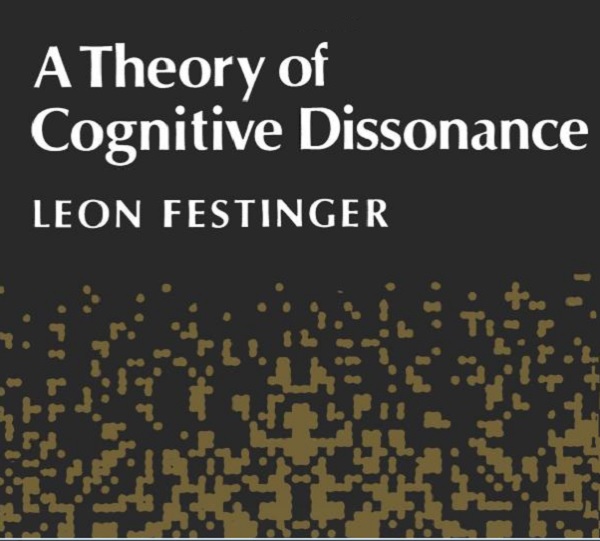Have you ever told a lie and felt extremely guilty about it? That discomfort and unease you feel may be cognitive dissonance. The most simple way to describe it is an uneasy feeling you get when you have conflicting beliefs and actions. If you’ve ever experienced this, you already know how negatively it can affect your personal and work life. But, there are things you can do about it.
What Is Cognitive Dissonance
Cognitive dissonance is defined by Psychology Today as a “state of discomfort felt when two or more modes of thought contradict with each other.” These modes of thought can include beliefs, actions, knowledge, and ideas.

Common examples are when you do something that you know is fundamentally wrong. Your mind then has to try to deal with the sudden conflict between your beliefs/ideals and your actions. Even something as simple as choosing to take the day off in the midst of a busy project at work may leave you feeling conflicted. You know you should be helping out, but you chose not to instead.
The theory began with psychologist Leon Festinger and his 1957 book A Theory of Congitive Dissonance. The book is still considered to offer incredible insights into how the human mind works. According to his theory, people will try to resolve the dissonance, restoring their cognitive consonance.
Recognizing the Symptoms
Sometimes it’s difficult to recognize the symptoms for what they are. This is especially true if you deal with anxiety. After all, anxiety can make you feel uncomfortable even when you’re not doing or thinking anything that goes against your beliefs. Plus, cognitive dissonance doesn’t affect everyone to the same degree. This means you may not even realize whether you’ve ever dealt with it.

Some signs you’ve experienced cognitive dissonance yourself include:
- You start trying to rationalize an action or decision to make yourself feel better
- Feeling ashamed of something you’ve done
- Experiencing lingering regret
- Feelings of discomfort or unease after an action or decision
- Feeling anxious or guilty
Everyone experiences this differently and to different degrees. The more misaligned the thoughts or actions, the worse you’ll feel.
How Cognitive Dissonance Affects You
When you experience dissonance, you immediately try to change your own mind. Obviously, this results in a conflict in your mind. You’re trying to change what you believe, what you felt, and how you think.

For example, you lied and cheated to get promoted before several co-workers who were more qualified. You know they were more qualified, and so do they. However, to try and resolve the dissonance, you try to convince yourself that you really are the most qualified. After all, if you weren’t, you would have gotten the promotion. You’ll even try to tell yourself that you didn’t really lie or cheat – you simply worked harder than everyone else.
While that may work in some cases, for many it just leads to more feelings of guilt, shame, and anxiety. The problem is you’re doing something that goes against your beliefs.
When your mind is busy dealing with a conflict, it can drastically affect your daily life. Some negative side effects include:
- Self-doubt
- Avoiding people and social situations
- Avoiding trying new things
- Procrastinating
- Anxiety
- Depression
- Higher levels of stress
However, cognitive dissonance isn’t always a bad thing. In fact, it can help you reevaluate deeply held beliefs and change your life for the better. For instance, being told exercise will help prevent a disease that you’re guaranteed to get if you keep eating certain foods, you could tell yourself that you’re fine right now and nothing’s wrong. Or, you may choose to change how you think and adopt a healthier lifestyle in order to live longer for the people you love.
Dealing With Cognitive Dissonance
Simply Psychology breaks down three main types of situations, along with real-world examples of when you’d deal with dissonance:
- Force compliance behavior – Forced to do something you really don’t want to do
- Decision making – Making a decision that conflicts with what you want or believe in
- Effort – After a lot of effort, things don’t turn out as expected

Usually, people deal with it in one of three main ways, including:
- Reducing how important a belief is (Reducing the belief that relaxing reduces stress so that you spend more time on physical activities that may relax you more)
- Changing current beliefs (Changing the belief that you work better if you wait until the last minute to stop procrastinating and get more accomplished while feeling less stressed)
- Adopt new beliefs (Research for new facts to help support what you believe or the action you took)
Since cognitive dissonance isn’t inherently good or bad, it’s up to each person to decide how to deal with the dissonance. For negative behaviors, the best approach is to gradually change the behavior. For negative beliefs, the same thing applies. Talking it out with friends or family is also a good idea. Obviously, trying to maintain behaviors and decisions that align with your beliefs works too.
If you’re struggling and the dissonance is harming your life, seek professional counseling to help you better work through the issues.

